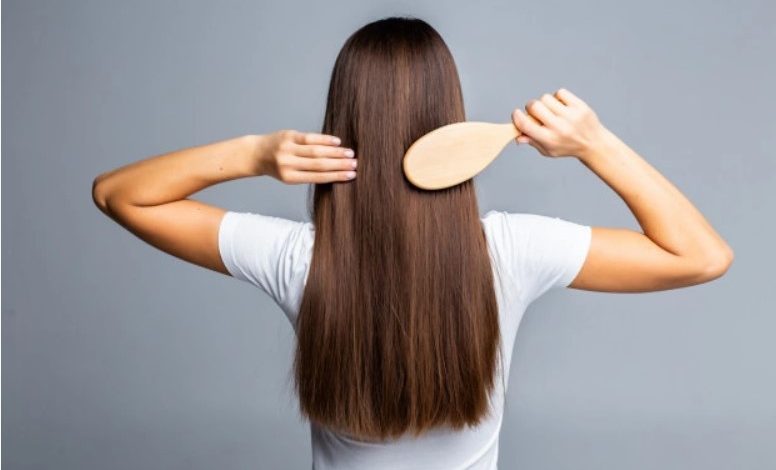What Is the Best Water Temperature for Washing My Hair?

Even the most beautiful hair treatment can be ruined if you do not follow the basic rules for caring for them. That rule exactly knows every hairdresser and hair service in salons. And the rules apply not only to the wrong choice of cosmetics, but also to the temperature of the water. Too cold or too hot water affects the hair in different ways and leads to different consequences.
Hot Water (55+ degrees)
Owners of oily hair must have noticed: if you wash your hair with too hot water, then the very next day you have to repeat the procedure again because of the untidy look of the hairstyle. Why does it happen?
It turns out that hot water raises body temperature by several degrees at once. It speeds up blood circulation and enhances the flow of nutrients to the hair roots. The sebaceous glands begin to work actively, which leads to rapid contamination of the hair at the roots. But the hair itself will suffer from nutritional deficiencies. If you constantly wash your hair with hot water, then even the greasy hair will begin to dry out at the ends and break.
Overdrying of the scalp and the appearance of fine dandruff is another problem faced by lovers of hot water. The fact is that the skin is extremely sensitive, and therefore any aggressive effect negatively affects the pH. Imbalance leads to flaking, weakening of the hair roots.
Color-treated hair is sensitive to high temperatures. Especially if you use regular shampoo or conditioner that is not designed to preserve color. Hot water opens the cuticles, and active chemicals “wash out” the pigments. As a result, the shade can not only lose shine, but also the brightness of the color.
Dull, thin, and brittle hair can also be the result of washing your hair frequently with hot water. The fact is that the scales that open during the procedure cannot close for a long time. And exposure to a hot stream of air from a hairdryer, styling products and a comb aggravates the situation. Hair is injured and begins to break, fall out. But the growth of new ones slows down due to lack of nutrients.
Warm, comfortable water (40-50 degrees).
From the point of view of trichologists, the optimal water temperature for washing hair is from 40 to 50 degrees. Such water does not leach, contributes to the normal cleansing of the scalp and hair, and does not disturb the pH.
Oily hair requires special care, they have to be washed more often and use special shampoos. Too hot or cold water can damage, but warm water can solve a number of problems:
- normalize the work of the sebaceous glands (especially in winter, when you have to wear a warm hat);
- reduce the frequency of hair washing;
- prevent the formation of oily dandruff;
- keep healthy ends.
Dry hair suffers not only from the aggressive effects of the external environment (sun, wind, chemicals), but to a greater extent from bad water. Wrong washing removes the protective layer from the hair, making it brittle, but soft and warm water gently cleanses and does not damage them. If you observe the temperature regime, use the right hair care products, you can keep elastic curls for a long time and not worry about the appearance of brittle and exfoliated tips.
The normal type is the most resistant to external factors, such hair does not need to be washed often or special shampoos should be used. But even in this case, warm water can bring a lot of benefits:
- hair will remain shiny and healthy for a long time;
- lack of fragility and loss of bulbs along with the hair;
- the normal, natural balance of the skin is important;
- lack of dandruff and itching.
Cold Water
Washing with cold water has both its pros and cons. But trichologists say that there are still more negative consequences. In addition to discomfort, a possible cold or poorly washed hair, you can get vasospasm, which will lead to a sharp pain in the temples.
Violation of the secretion of the sebaceous glands due to frequent washing with cold water can cause both excessive dryness and “greasiness” of the scalp, resulting in seborrhea or seborrheic eczema. The most common consequence of this disease is focal hair loss, accompanied by itching and the appearance of fine dandruff.
If during washing with normal temperature water the pores of the skin open, then the cold causes the opposite effect – sharply narrowing vessels lead to muscle contraction and closure of the pores. As a result, fat and dirt are not washed off, and the hair roots do not receive nutrients for a long time. The consequences of such washing can be several:
- weakening and thinning of the hair along the entire length;
- the appearance of split ends;
- hair loss along with the bulb.
Most shampoos are designed to wash with water at a comfortable temperature. So they do not remove dirt well in cold water. The remaining particles of dust, scales, fat will give the hair a sloppy, untidy look, the strands will stick together, lose their natural shine. Applying styling products, drying with a hairdryer will only worsen the situation.
But rinsing with cool water with the addition of herbal infusions will only bring benefits, help strengthen the roots, and add shine. Best for this purpose are decoctions of fresh or dried nettle, chamomile, fresh burdock root. For oily hair, you can prepare a weak solution of lemon juice, it will prevent the hair from becoming greasy quickly.
The quality and temperature of the water have a direct impact not only on the scalp, but also on the hair. Proper cleansing will help avoid such troubles as dandruff, brittleness and loss. As well as forget about scissors for a long time.





